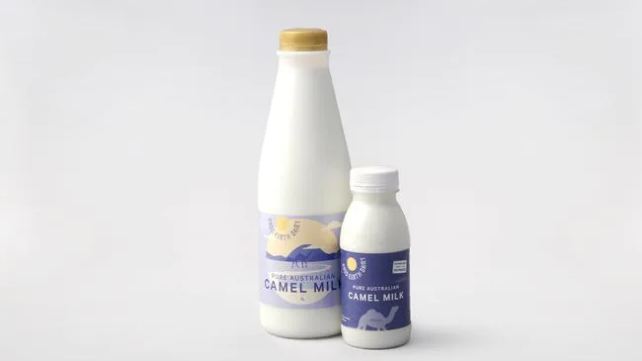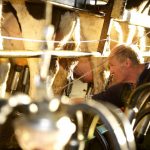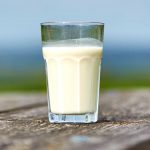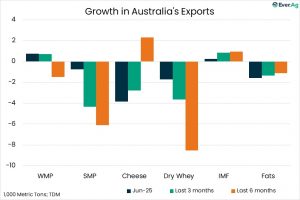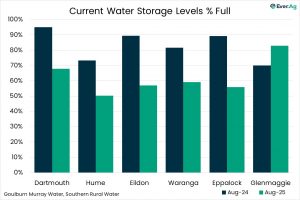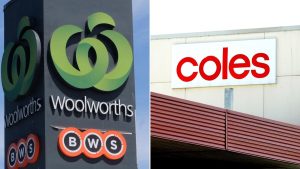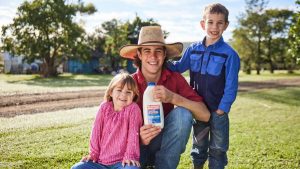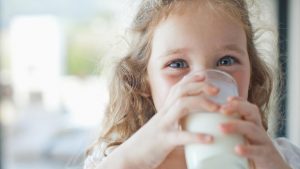
A former engineer from Western Australia now milks wild camels for a living in a move that he concedes is unexpected, but lucrative.
CEO of camel milk company Good Earth Dairy, Marcel Steingiesser, says the business has turned over $250,000 in the last 12 months from the unique idea.
The ex-BHP chemical engineer co-founded Good Earth Dairy in 2015, which was originally intended as a technology enterprise.
After using wild camels caught in the Australian Outback to test out their tech, they were left with heaps of leftover milk.
“Our product was the research and development, the technology we were developing to be able to commercialise,” Mr Steingiesser told news.com.au.
“Our waste product was the milk. At the beginning … we would throw all that milk all over the ground every day. It was crazy.”
It was here that Mr Steingiesser decided to process and sell the milk instead, and he found huge demand from Australia’s west coast and also Chinese buyers.
The Perth local estimates the business could make eight figures in a year, if he could just get the funds to build the right machines to get the job done on a larger scale.
Mr Steingiesser, in his early 40s, explained that unlike cows, his camel stock comes at a very low cost because they’re all caught in the wild.
“Our camels have come across central Western Australia,” he said.
“We have a relationship with some people who catch them.”
Camels were brought into Australia in the 1800s and now the country has the world’s largest wild camel population, standing at more than 1 million.
Mr Steingiesser had never even set foot on a farm or touched a camel before starting the company, previously working as an engineer for 14 years.
His business partner and fellow co-founder Stephen Geppert was no stranger to camels, however, having ridden two of the animals across Australia’s five major deserts in a year, solo.
Good Earth Dairy currently has 100 camels on their premises, a two-hour drive away from Perth, with a shipment expected to bring in 80 more.
Half their camels are also pregnant, so that number is expected to jump to 230 in the next few months.
Such is the way that the machinery is designed that only a few staff members are needed to run the farm.
“We can take 120 wild camels, with only one individual looking after those animals,” Mr Steingiesser said.
He now has 12 people working under him on the dairy farm.
Camels give out 5L of milk a day.
While that’s less than a cow – which produces more than 20L in milk daily – it’s the same as a goat.
“I thought to myself, ‘Hey, there’s an opportunity there,’” Mr Steingiesser recalled.
“I realised I could take this a very long way.”
It has indeed gone a long way; Good Earth Dairy products are in 50 supermarkets across Australia’s west coast – in IGA, Farmer Jacks, Gilberts and Fresh Provisions.
Good Earth Dairy sells its milk for on average $10 per litre in Australia and also to Chinese buyers.
They’re aiming to drive the price down to just $2 per litre, to be cheaper than their bovine rival, with cow milk selling for around $4 a litre on average.
When news.com.au tried the milk, it was slightly creamier than cow’s milk, and less sweet, but otherwise the difference was negligible.


Mr Steingiesser reckons Good Earth Dairy has the potential to turnover eight figures a year, if he can get enough funds to build more complicated dairy facilities.
The Perth local plans to build a dairy treatment module, which will increase profit by more than 100 times.
“We’ve designed a module for dairy,” he said. “Each module can make eight figures. We want to build one first.
“Our ambition is to build 10 over the next five years.
“We are expecting an eight figure turnover (once all the modules are built).”
Each dairy module can hold 5000 camels.
However, Good Earth Dairy needs outside backing to get it up and running.
At first the business was bootstrapped, meaning Mr Steingiesser and Mr Geppert poured their life savings into it along with several other investors.
But they needed more, so they launched a crowd-funding campaign in October last year to raise equity. It raised $1.2 million in two days.
They’ve just launched another campaign this week.
“We’re now doing a second campaign,” Mr Steingiesser said.
“We’ve had more than 1200 expressions of interest. The average quantity (of investments) is just over $3000.”
